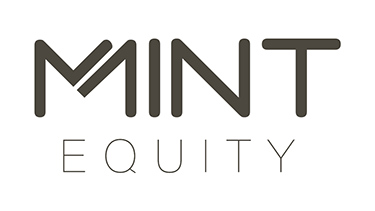How does a credit score affect your interest rate?
Credit scores have become increasingly important over the years when it comes to securing finance as the banks continue to look at ways to automate the lending process for greater efficiency and quicker turnaround times. They have the ability to affect a lenders decision on whether to approve or decline a loan. But, as lenders seek ways to reduce their risk, credit scores now have the potential to affect interest rates too.
A 2nd tier lender has recently announced that they will offer consumers discounts on home loans and credit cards based on their credit score.
When it comes to home loans, consumers with a Veda Credit Score of 700 or higher can receive a home loan with a variable rate of 4.29% or a three-year fixed rate of 4.29%, with no set-up costs or on-going fees. This offer will also apply to both owner-occupied and investment home loans.
As a comparison, CBA’s standard variable rate for owner-occupied home loans is 5.45%, while the investment standard variable rate is 5.72%. The three-year fixed rates for owner-occupied and investment loans are 4.54% and 4.69%, respectively.
What is a credit score?
Your credit score is a number that represents the information contained in your credit report. It attempts to give creditors an idea of how financially responsible you are. Veda Credit Score uses a credit rating between 0 and 1200 summarising the information in your credit report into one number, called your VedaScore. Hundreds of lenders and credit providers in Australia use their services.
What can affect your credit score?
When you apply for credit whether it be a credit card, personal loan or home loan, the relevant credit provider may check your credit report, leaving an enquiry on your report. Credit enquiries affect your credit score. A relatively high number of enquiries within a short period of time could adversely affect your score and ability to get credit.
This is where mortgage brokers are particularly valuable as they have a solid understanding of how credit lenders assess and what may or may not be approved, without needing to submit an application form. They have direct access to most lender’s credit departments and are able to run scenarios through them to assess if approval is likely prior to an application being submitted.
How to improve your credit score?
- Pay your loans and bills on time
- Work out payment plans with credit providers
- Avoid making many applications in a short period of time. A mortgage broker can provide you with lending options prior to submitting any applications
- Refinance and consolidate more expensive debt
- Redirect your bills if your moving so you don’t fall behind
Financial institutions have always had internal policies that affect pricing dependent on the risk level of the applicant and security, but this is the first lender to offer transparency in how they assess the risk.
5 Ways to Improve Your Credit Score
Credit scores influencing interest rates presents a new take on the real impact of looking after your finances. Whilst previously some borrowers may have been flippant around their credit score, they can now see the financial impact of having a good credit score via a direct saving on interest rates.
How are business owners affected by company credit checks?
Even for business credit the credit provider will perform credit checks on the Company Directors. This will also appear on the Director’s personal files, so it’s even more important for Company Directors to have a clean credit history.
What is Comprehensive Credit Reporting (CCR)?
In March 2014, The Privacy Act 1988 (the Act), was amended to introduce comprehensive credit reporting.
Comprehensive credit reporting changes the type of consumer credit information that can be collected by credit bureaus and used by credit providers when making a lending decision.
The changes give Australian’s the opportunity to demonstrate a more comprehensive view of their credit and the ability to manage their credit profile.
Companies like Veda Credit Score have introduced more comprehensive reporting, providing a credit rate score product called VedaScore that helps consumers identify their current credit score ratings and areas for improvement.
What are the benefits of Comprehensive Credit Reporting?
- Consumers are now able to have good credit behaviour taken into account when applying to credit lenders. The system now records if you’ve made on time credit payments.
- With better management, consumers are now able to improve their credit profile following an adverse financial event. There is also increased transparency so consumers know what credit issues they have and can take action to repair their credit if need be.
- Providers and lenders will take into account good credit behaviour which will have an impact on accessing credit and securing the lowest interest rates for your situation.


